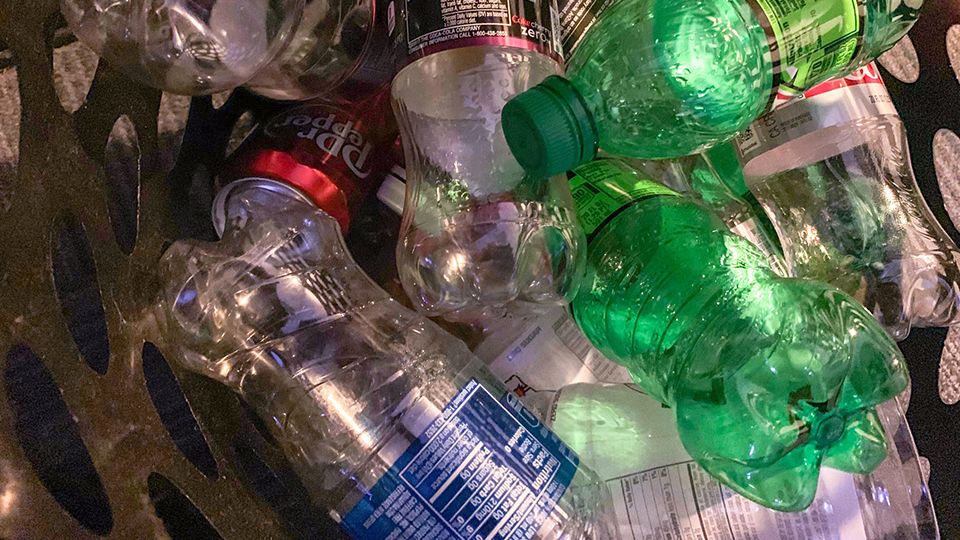CHARLOTTE, N.C. – Leaders with Mecklenburg County Solid Waste Services say they are seeing a record number of packaging materials in the recycling. However, a lot of those shipping items are simply not recyclable.
“I see that people are trying to recycle right, but they take the lazy route, they don’t take the Styrofoam out,” says Ismael Chicas, the senior maintenance technician for Mecklenburg County Solid Waste Services
Styrofoam and plastic are not recyclable in Mecklenburg County.
Chicas says usually around the holidays, there are more items put in recycling, but this year was the busiest he has ever seen.
“Clothes hangers, more clothes hangers, I am not sure what that is [metal piece], but that is not recyclable,” Chicas says, listing off items that are not suposed to be there.
But, that wasn’t the worst of it. Solid Waste Environmental Specialist Nadine Ford found a diaper in recycling.
“I can’t figure out why someone would think that is recyclable,” Ford says.
While many people were on vacation for the holidays, solid waste service employees were hard at work sorting through items that should not be in recycling.
“I worked Christmas Eve, New Year’s Eve,” Chicas says. “It was very busy.”
Here is the list of items that are recyclable: plastic bottles or jugs with necks, cardboard, cans, cartons, paper, and glass bottles.
Here is the list of items that are NOT recyclable: plastic bags, food containers, yard waste, coat hangers, and clothing and shoes.
“The problem with plastic is that if this bag goes throughout machinery, it will tangle up in it and we have to shut the machines down for a good day or so,” Ford says.
The director of Mecklenburg County Solid Waste Services, Jeff Smithberger, says taxpayers foot the bill for the non-recyclable items.
“We are paying about $1.8 million a year to clean up recyclables,” Smithberger says. "If people could give us the only types of products that we want, then we can substantially reduce the cost of cleaning up improper recycling.”
Smithberger says some other countries have gotten rid of recycling because it’s too expensive to sort through the improper items. Chicas says he hopes that doesn’t happen in Mecklenburg County.
“A lot of hours get wasted out here,” he says. “I feel like it never changes. Every year around Christmas, I just feel like people aren’t informed.”
For a detailed list on what items are recyclable, click here.




